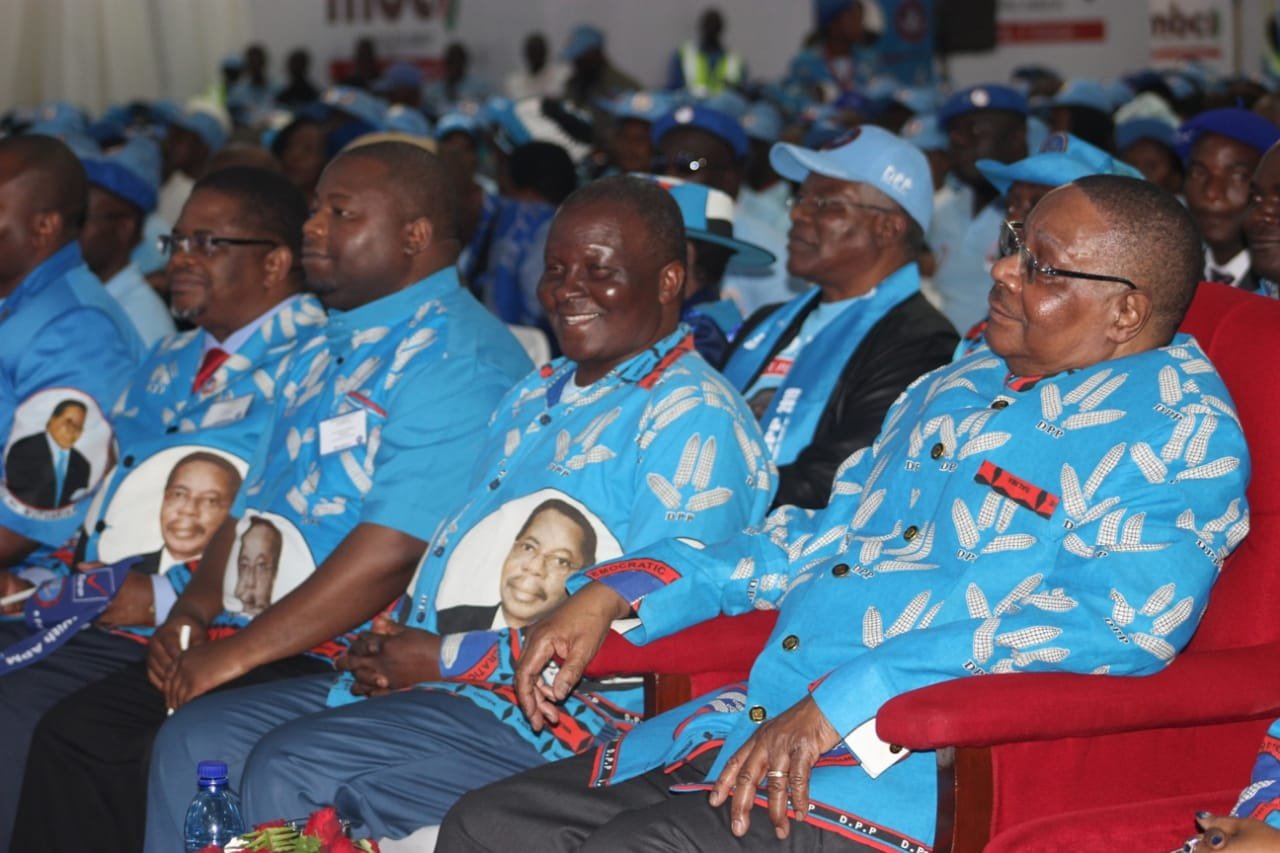By Rick Dzida
It is widely believed that the courts are the final arbitrators of justice between the aggrieved parties in our society.
Assumptions are also always held among members of the general public that they can get fair and just verdict from our judicial system.
Unfortunately, the truth is that as human beings, magistrates, judges and justices in our court system are prone to bias and error too. They are literally not infallible.
This is why most verdicts delivered in the lower courts are appealable to a higher court. Even at the Supreme Court of appeal, the finality of their verdicts does not imply their infallibility.
What has caught my profound curiosity is the way the courts have been running the affairs of the main opposition party, the Democratic Progressive Party (DPP).

It seems like our judicial system is so much privileged that it is on the driving seat of DPP machinery.
Firstly, the Constitutional court hereinafter referred to as Concourt, annulled 2019 presidential elections which Prof. Arthur Peter Mutharika (APM) won, although there was no evidence of rigging. Even international observers had endorsed such elections as being free and fair.
It is pathetic that Concourt’s verdict was only based on mere presence of electoral irregularities which were not proved to have affected any presidential candidate’s votes.
Secondly, the Concourt goofed by faulting the victor of 2019 presidential elections that he did not meet the 50%+1 majority when all previous presidents were elected based on a simple past-the-post strategy as endorsed previously by the Supreme Court of Appeal.
Obviously, the 50%+1 Concourt’s interpretation of the Constitutional term ‘majority’ could not have been applied retrospectively.
Thirdly, the Supreme Court of Appeal sustained the Concourt’s verdict even though it was aware that it had made serious legal errors such as a fallacious argumentum ad dictionarium on the interpretation of the term ‘majority’ and nullifying legitimate presidential elections where there was no evidence that electoral irregularities had affected the candidates’ votes.
Fourthly, the court granted an injunction to sustain Kondwani Nankhumwa as the Leader of Opposition in Parliament although there were irregularities in his appointment as there was ample evidence that the Speaker of the National Assembly, Mrs. Catherine Gotani Hara, was directly and single-handedly involved in handpicking Kondwani Nankhumwa.
Fifthly, it was unfathomable and illogical when the High Court ruled that an inquorate panel of Malawi Electoral Commissioners (MEC) did not affect the legitimacy of 2020 fresh presidential elections.
The truth of the matter is that MEC that presided over the 2020 fresh presidential elections did not form a quorum, if Judge Kenyatta Nyirenda’s illogical judgment is to go by. Therefore, the formulation of MEC commissioners then was supposed to be rendered unconstitutional.
For sure, unconstitutional MEC had no constitutional mandate to determine the winner of 2020 fresh presidential elections.
A rerun of 2020 presidential elections could have been a fair and just verdict.
Unfortunately, the Supreme Court of Appeal again sustained the High court’s verdict that the 2020 fresh presidential elections could not be nullified.
Sixthly, there is an attempt by the court to resolve the DPP internal squabbles by providing legal solutions. However, political wrangles require political solutions.
Ironically, the same court goofed by providing political solutions to a legal electoral quagmire by nullifying 2019 presidential elections when it admitted that it did not find evidence that electoral irregularities had affected the candidates’ votes. It looks like our judicial system is a scam.
It is not true that internal squabbles in DPP can only be addressed by litigation. There are other avenues of resolving conflicts.
Thomas-Kilmann model, identifies five different approaches to conflict resolution vis a vis avoiding, competing, accommodating, collaborating and compromising.
It is my hope that the DPP leadership and its members can consider these five conflict resolution approaches before taking their disagreements to court.
The DPP as a party must accept that there is a conflict of power struggle between Kondwani Nankhumwa and Prof. Arthur Peter Mutharika. It must not ignore this quandary.
Perhaps, the two presidential aspirants they tried to avoid each other for a long time but then they discovered that it didn’t work out.
As it is on the ground, Kondwani Nankhumwa is directly competing head-on with APM. They are both using a win-lose strategy as means of conflict resolution management.
Kondwani’s strength is the favour he gets from our courts while APM’S privilege is the DPP constitution and moral support from some sect of the party.
In my view, the DPP must go further to implement accommodating, collaborative and compromising conflict resolution strategies.
Accommodating conflict resolution technique demands that one party to the conflict must be prepared to lose for the sake of maintaining cordial relationships. That is why it is called a win-lose strategy.
In this case, I implore Kondwani Nankhumwa, as an upcoming, youthful and vibrant political figure to pave way for his incumbent party president, Prof. Arthur Peter Mutharika.
Another suggested pragmatic approach to the conundrum rocking DPP is the collaborating strategy also known as a win-win strategy.
In this scenario, both Peter Mutharika and Kondwani Nankhumwa can sit on a round table to discuss all the possibilities till both contesting parties accept a mutually agreed solution.
Lastly, both Kondwani and Peter must be prepared to lose their egos. This is called a lose-lose strategy or a compromising conflict resolution technique.
For example, both Kondwani and Peter can forgo their presidential ambitions paving way for other aspirants to compete amongst themselves.
In conclusion, this article has delved into various ways in which the leadership of DPP can initiate dialogue with aggrieved parties by bypassing avoiding and competing conflict resolution approaches while employing accommodating, collaborating and compromising conflict resolution techniques.
Members of DPP are strongly advised that litigation should be the last resort because it is not the mandate of the court to run the affairs of a political party However, the court has a discretion to be a legal arbitrator between the warring forces in DPP.


